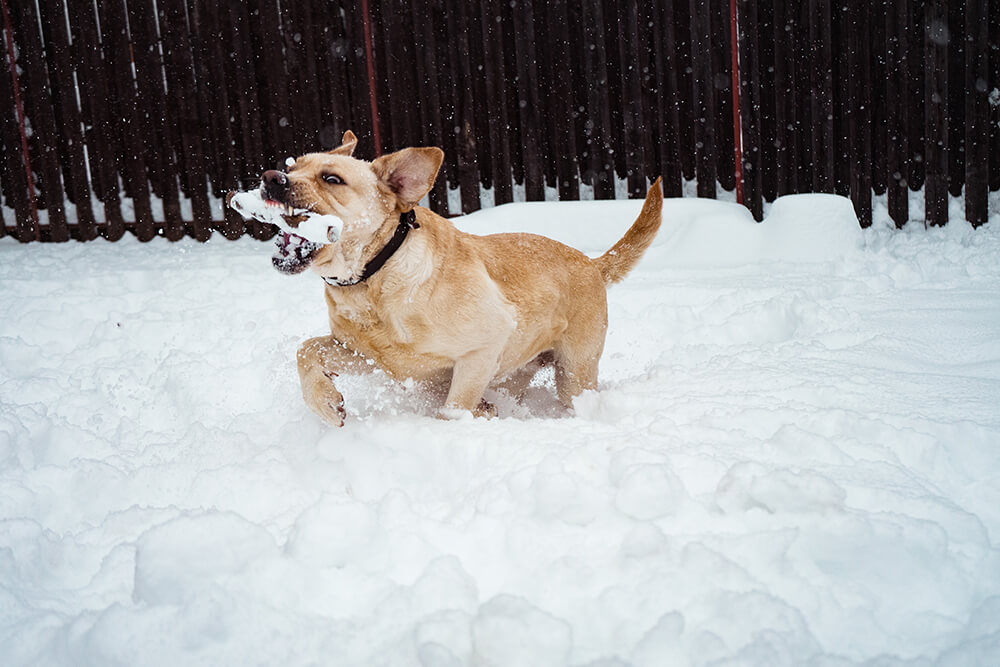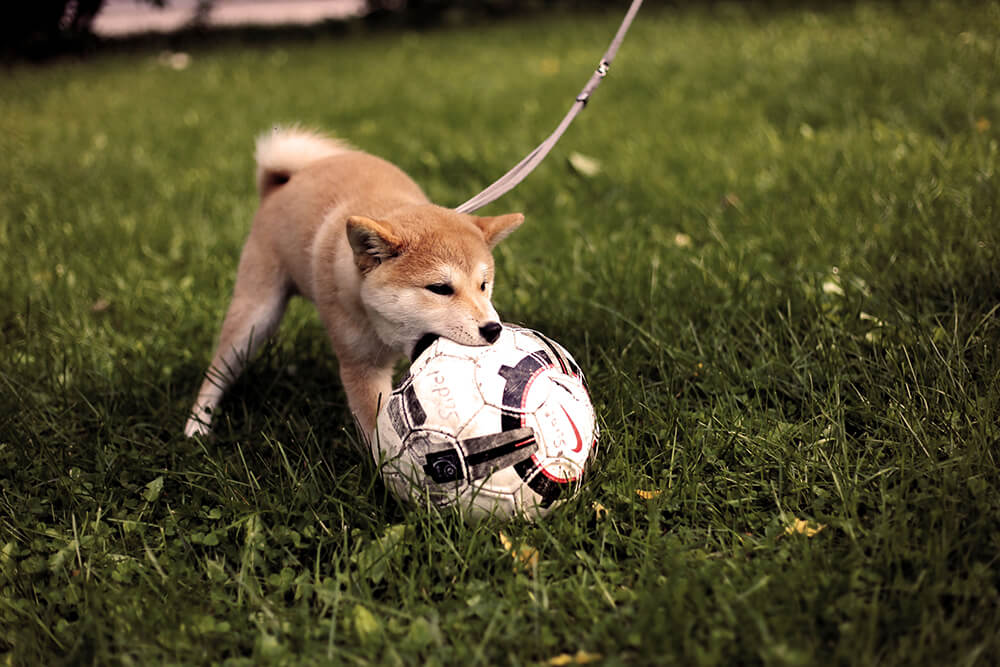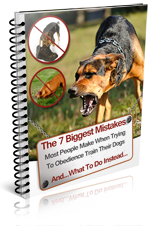
See what the world's most popular Dog Training Guide can do for your Dog.
If you want to prevent and stop your dog biting, then the best time thing you can do is start training your dog when it is a puppy. Puppies naturally love to play, and enjoy interacting with people. But they are also impressionable, so if you teach them right from wrong early on and enforce it consistently, then they will not develop bad habits such as biting.
Have toys available for your puppy to play with, and do not allow any games that have the puppy biting a person (such as tug of war or wrestling). If the puppy does bite you, even in play, immediately give a high pitched "Ouch" loud enough to startle the puppy. Your puppy will actually recognize what you are doing: when puppies play with each other, they let one another know that they've been hurt with a loud whelp. So do the same, and your pup will know to stop biting.
Never punish your puppy physically, as this will just provoke him and develop a long-term fear of you that will take much hard work to reverse. Instead, just verbalize, and ignore the puppy for a few minutes. Repeat this a few times and the puppy will quickly learn that people won't stay and play if they are bit. Since puppies love attention, this lesson will be quickly learned. Avoid games like tug of war or games that involve taking items out of the puppy's mouth, as this can lead to biting and start bad habits.
Everyone in the family should be consistent with this training. Children should be taught how to handle a bite from a puppy, and should be supervised when they are playing with the puppy. The children may have to learn how to play with the puppy just as the puppy needs to learn to play with them. Be careful not to allow the puppy to mouth or bite on your fingers. Some people mistakenly see this as affectionate or cute behavior. It is, in fact, teaching your dog that it is all right to bite people, and can develop into serious dog aggression if untreated. Not a message that you wish to leave with your puppy!
If your puppy continues to bite...
Only use this method if you are sure your puppy won't bite too hard! If your puppy does not stop biting, you can discourage the biting by loosely holding her lower jaw between your thumb and forefinger--after she has taken your hand in her mouth. DON'T hurt her by squeezing too hard; just gently hang on so that wherever her mouth goes, your hand goes too. Ten seconds of this and your puppy should get the idea. When you next put your hand near the pup, if she ignores it or licks it, PRAISE IMMEDIATELY. If she tries is a bad idea.
A second option is Bitter Apple or other aversive substances. Coat gloves with a foul-tasting substance such as bitter apple. Every time your dog tries to bite, he should be repelled by the taste and stop biting. The only risk is that your dog will fear the gloves more than the act of biting itself, so do not rely exclusively on this method.
Training mature dogs not to bite
An older or more mature dog will require some additional training if it bites. Here are some treatments to stop the dog biting:
- A muzzle. Especially if you have visitors or your dog bites out of pain, you'll want to muzzle your dog to prevent any dangerous attacks.
- Let your dog know he's up to no good. The way to stop dog biting, is to let your dog know that biting is not acceptable. If your dog nips, growls, or actually bites, say "AAAH!" with a loud, guttural growl. Then chase him away from you and act like a scary monster--dogs do not react well to fearful situations!
- Do this IMMEDIATELY. If you wait too long he won't know why he's being corrected. If you consistently reprimand him as soon as he acts improperly, he'll not only stop biting but also respect you more. It's win-win!
Dominance
If the dog is biting to show dominance try the following methods:
- Follow through on every command. Be insistent that the dog comes, sits and stays before you feed him or her. Obedience training with a professional may be required.
- Only feed him or her when they come on command and sit. Give the food for a set amount of time and remove the bowl. This puts you in charge in the dog's mind. Do not give your dog free access to food. Make him sit and wait for it. YOU are the alpha of the pack.
- Enforce boundaries as to what is the dog's area and what is yours. Dogs should not be allowed to sleep in the bedroom or on the bed; rather they should have their own area away from the family. Additionally, if you consistently make the couch and other furniture off-limits, he will respect you more for your alpha status.
- Muzzle the dog when children or other individuals are present, or in any situation that is new.
Biting from over-excitement in play
- Avoid games that involve close contact with the dog. Never wrestle or play tug of war with these dogs.
- Teach the dog to sit and drop the ball or stick before attempting to retrieve the item.Offering a treat in exchange for the item, then giving lots of praise, will work wonders for the bond you and your dog enjoy.
- Limit play to short time periods to avoid over-stimulation. Make sure the dog is calm before beginning. If he gets over-excited and aggressive, ignore him for several minutes. Do not resume play until he has calmed down.
Territorial
- Clearly define the dogs area with a fence, play pen or kennel.
- If the dog has become territorial about a specific chair or other piece of furniture either ban the dog from that item or remove it from the room.
Fear Biting
- Increase the dog's self-confidence with a gradual introduction to new settings and lots of positive rewards and praise.
- Introduce your dog to new people and animals in a slow and relaxed manner.
- Reward your dog for staying calm in new situations.
- Do not punish a dog that is afraid. This will only make the situation worse.


